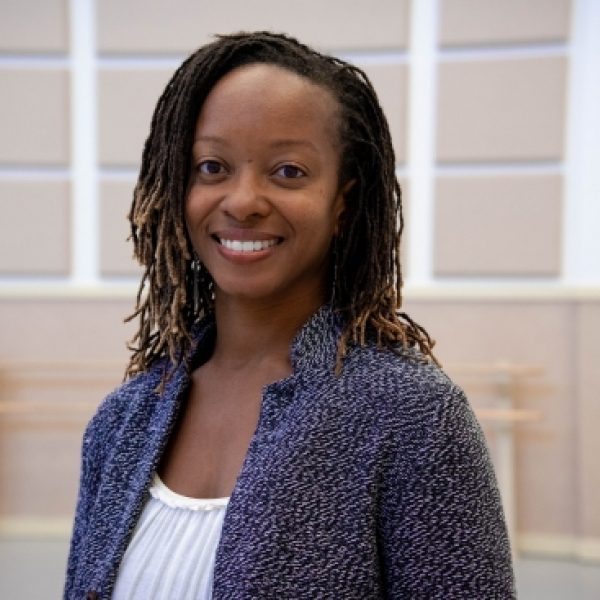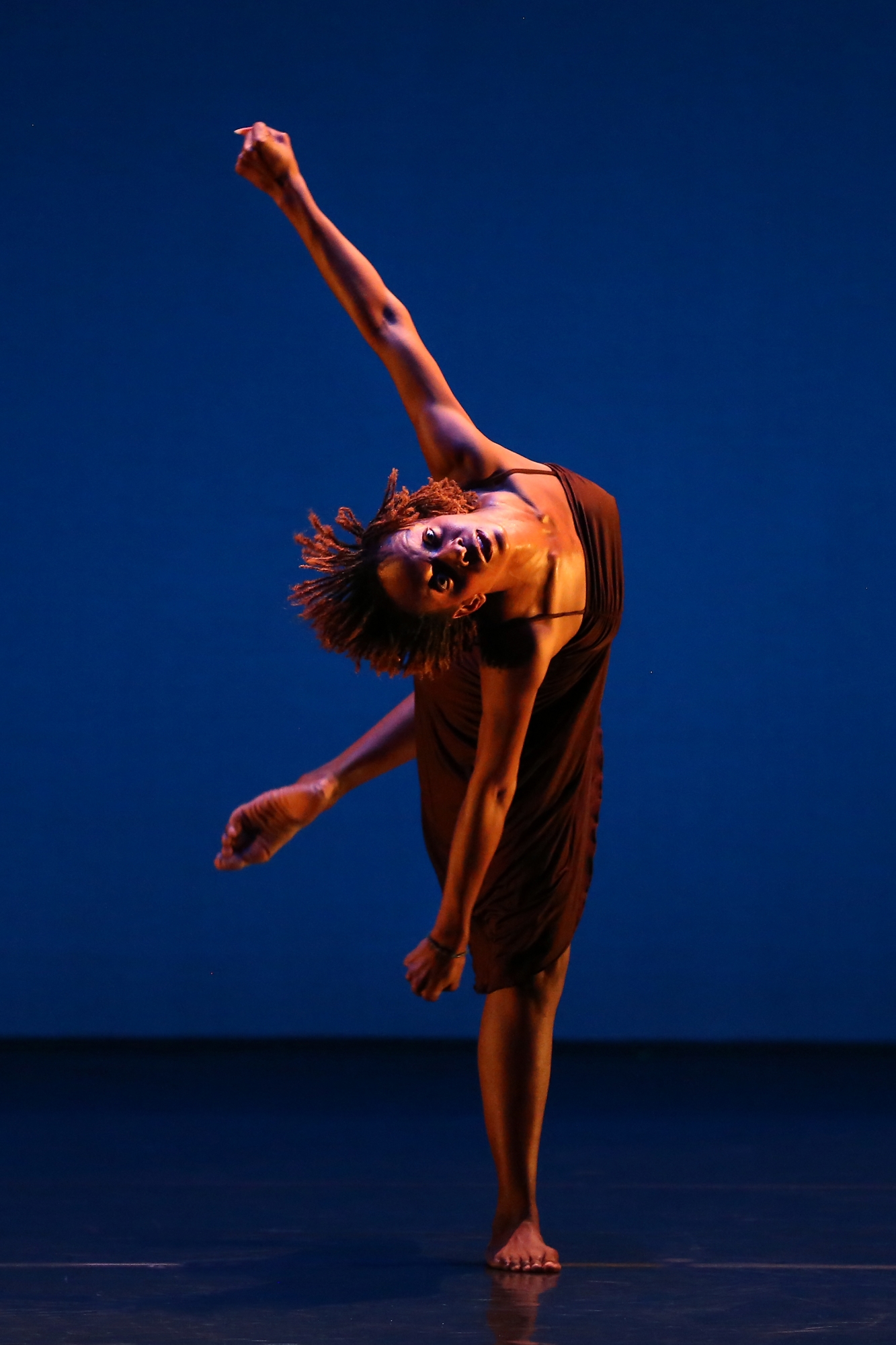Tamara Williams

From Classical Ballet to Dances of the African Diaspora
Assistant Professor of Dance
Assistant Professor of Dance Tamara Williams grew up in Augusta, Georgia, and quickly found her roots in dance, though her training stemmed from two completely different techniques: classical ballet and West African dance.
“When I was two, my sister took ballet classes at the Augusta Ballet. She always left with her pink ballet bag, and I wanted to go with her. When she came home from class, she would teach me what she learned. That’s when I first discovered I loved dancing,” she recalls. When she was old enough to start training, her studio/school teachers helped develop her formal training. On the other side of the spectrum, she had always been influenced by the social dancing of her family at gatherings and after church. As she put it, “dancing was in our blood.”
Williams went on to study dance at Florida State University, the only school she applied for. She danced professionally in New York for several years, and, at the same time, was able to travel to several countries, including Brazil, Cuba, and Trinidad, to get a better understanding of the African diaspora and her own heritage. It was those travels that led her to pursue an MFA in Dance at Hollins University. “I wanted to continue my work as a choreographer and performing artist,” she said, “but I also wanted to teach in academia. I loved the atmosphere, the aspect of research, and the studies and discussions that happen at the academic level.”

When she saw the job posting at UNC Charlotte for an Associate Professor of Dance with a concentration in African Diaspora, she was immediately drawn to the position. Ring shout, an African-American dance and music form that is one of her areas of study, has roots in North Carolina, and she would be able to continue her research at an urban university. “The position was what I’ve been living, studying, and researching my entire life,” she said.
One of her main areas of research includes the teaching of Sylvestre technique, which is strongly tied to nature, the body, and the universe. Another is the spiritual dances of the African diaspora, drawing from her interest in the enslavement of Africans within the Americas, the shared mixture of cultures that were dispersed throughout, and how that culture has to contributed to the dances of today. The last, community-engaged scholarship, which she also carries out within her dance company, Moving Spirits Inc., creates opportunities to learn from the people in the community through movement, programming, and discussions. This study led her to create a new course for the Department of Dance in 2018, “Dance and Community,” in which students learn how to engage with and enter and leave the community respectfully.
“Charlotte is interesting,” she says, “because it has a rich history, but it also has a direct relation to my research.” It is because of this connection that Williams has been able to create field study trips for students to the plantations of Charleston and Beauford, set work for student concerts in a codified movement style of ringshout, and even bring students on research trips to places like Bahia and Morro de São Paulo, Brazil. Since joining the department in 2015, she says her favorite thing is “having an opportunity to teach and learn from the students. And also having a space to be supported in these research investigations.”